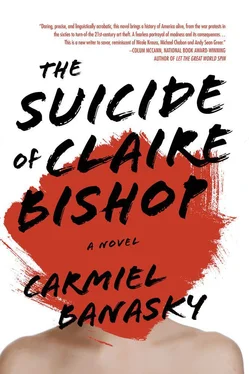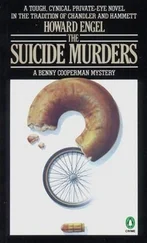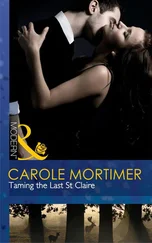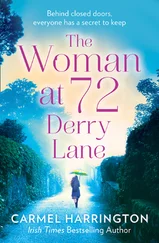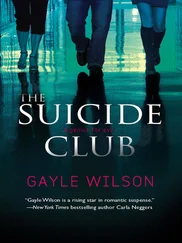And in return, Nicolette had listened. The artist had closed her eyes and listened. She’d seemed, almost, to swoon.
But Claire wasn’t posing on the couch anymore. “Why don’t you have children then?” Claire said in answer.
In the settling dark, it seemed Nicolette was pushing something over to her with her eyes, but Claire didn’t know what, or how to receive it. Then the painter looked away.
“It’s getting late,” she said. “I’m expected.”
Who would be expecting Nicolette? Did she simply want to leave? But it was none of her business. Nicolette was hired as a painter, not a confidante.
Claire nodded. “I think I’ll stay up here a while.”
Nicolette shrugged and turned to go. As she was about to exit through the large metal door, the superintendent, Tomasz, appeared in the lit threshold. Claire saw him turn and watch Nicolette’s backside as he held the door for her. Striding across the tar rooftop, Tomasz tipped his hat at Claire, or perhaps he was only holding it against the wind. She pocketed Nicolette’s matches, left on the ledge.
“Mrs. Bishop.” His Polish accent was curt. He winked as he shook a cigarette from his pack of Golds.
She felt he’d caught her in some illicit act. She blushed crimson as she always did in his presence; it was out of her control. On more than one occasion she’d sensed Tomasz watching her. When she was above him in the stairwell once, she swore she caught him looking up her skirt. It was shameless, but she didn’t mind; she was still doing something right.
Months ago, when Freddie was away on business, the shower had started leaking from the valve. She’d called Tomasz to take a look, thanking him profusely. Both of them angled together in the cramped powder room, but when he’d tested it, the shower no longer leaked. “I tried it myself before you came,” Claire insisted. He said there were easier ways to get him up to her apartment. The nerve. She’d demanded he leave immediately and had been too embarrassed to ask him for anything since.
His match went out with the wind. She hated him for his shoulders, his handsome face. She tried to hide her red cheeks with her hair. She would tell him proudly that she could not stay to chat, that she must retire early to prepare for yet another day of sitting for her portrait.
Instead, she pointed uptown. “I sometimes imagine the skyscrapers are ladies waiting to go dancing. Isn’t that silly?”
She laughed and looked away, afraid he’d catch the lie. Then she struck one of Nicolette’s matches and cupped her hands around his, nearly singeing his fingers. Tomasz held her eyes, nodding to the beat of the wind. “What stiff ladies,” he said.
She laughed as if she cared. Her stomach hurt.
Claire tried to go about her evening as usual. She fed the cat, made herself a martini, dusted the breakfront, polished her silver and fork collection. She tried reading from an art history book she’d checked out of the library for Nicolette’s benefit, but knew she’d nod off if she read another page.
She tried to push the painting, unlocked, untied, from her mind. But then she found herself sitting again on the couch in the den, as if still posing, facing the back of the draped canvas, and beside it, the blank wall above the mantel where it would hang. Claire tipped back the last of her drink and was feeling terribly light. Had she forgotten to eat supper again? Freddie was dining out, as he often did, with a colleague from work. Or someone. That woman from work. Claire worried he might be meeting Nicolette. It was a stupid worry, she knew, and yet she wouldn’t be surprised. But Nicolette had such a queer nose. Freddie could never love a girl with such a queer nose. And even if he could, Nicolette didn’t seem keen on him, or any man. Claire, however, could appreciate the queerness of the nose. It was exotic. Ethnic, even.
Claire steadied herself and edged toward the painting. She tiptoed to the front of it, where Nicolette had sat for three days, staring at her. Could she have left it untied on purpose?
On that first day, as Claire sat rigid on the couch, she had asked Nicolette what, exactly, she was doing with her charcoal fragments and sketch board. Nicolette replied that she wanted Claire’s face in her muscle memory, so her likeness would become subconscious. The idea was outlandish, until it was not. To be memorized, to be known like that, had made Claire feel skittish and elated, dizzy.
She smoothed out her skirt. She wanted to see herself like that too, to know herself.
Claire lifted the drape.
There Claire was, and wasn’t. Her body was severed across the canvas. Severed and repeated. Repeated and mutilated. A woman, and the body of a woman. Claire at every moment of her life: a young girl, then elderly, then her current self with dirty blond waves done up in rollers — all unmistakably Claire. Claire falling from a bridge.
It was a portrait of a dead woman. Nicolette had killed her.
She pressed her fingers to the windowpane. Three floors below, children were running between lampposts just lit, a stray dog barking madly at them, though Claire could only see the barking, not hear it. They shuffled around an old man who stood very still in the middle of the sidewalk. An umbrella spidered out of the bushes beside him. The man looked at it, and she at the man, and the treetops in Washington Square moved to a breeze she could not feel. She swayed with them. She leaned on the wall behind her for support. The floor swayed like some long forgotten ocean wave. She felt seasick. She dug her fingernails into the palm of her hand until it throbbed.
When she returned her gaze to the canvas, it hadn’t changed.
It was not a portrait, but it was of Claire. There was Claire, fixed to canvas many times over. Claire falling. Again, Claire falling. Claire falling from a bridge.
It was not nice to look at. It was almost ugly. Or maybe it was beautiful. Avant-garde. Maybe she wasn’t smart enough to understand. Freddie had told her as much. That was years ago at the gallery opening of a friend of his — she’d embarrassed him, saying loudly, drunkenly, how awful the paintings were. Like children’s drawings, she’d said. The artist had as little taste in color as he did in propriety. It simply wasn’t her cup of tea.
But this was another matter. So what if it was art? Claire was smart enough to know that a person should not paint this instead of a portrait when commissioned to paint a portrait. This was something else. It was Claire falling from the Brooklyn Bridge. It was Claire dead on the street below, her very own street — not the East River, but the cobblestones of Sullivan. What did that mean? Who was Nicolette to paint her this way? Whatever it was Nicolette had seen in Claire was obviously a mistake. Nicolette was mistaken.
Claire slammed her body into the wall behind her. She was made of rubber.
She wanted, with a sudden and foreign fury, to hit herself.
When Nicolette had asked Claire to talk about herself during their sessions, Claire had spoken about her father.
Ernest Gabelmacher stepped off a dewy boat named the Susquehanna in June 1922. It was the wettest crossing in a decade, or that’s what the captain, who’d taken a liking to Ernest, had told him portside on their one dry stargazing night. Ernest was likable in any language and was aware of this fact, but that did not mean the captain could help him find a job; it was not a good century to be German in America. But, the captain reminded him, there were steps one could take. “Soon you won’t be so German.”
Ernest had ten thousand Papiermark to his name — five thousand in his pocket, five thousand sewn into his suit. This, he learned his first night in Albany, rounded out to just over two dollars. He arrived in time to hear Warren G. Harding deliver the first ever presidential radio transmission. In a deli, customers gathered around a homemade crystal receiver. Ernest pretended his English was solid enough to understand, applauding when the others did, jeering when they jeered.
Читать дальше
